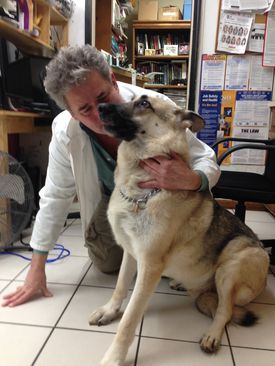A Guide to Canine Medicated Shampoos
Introduction
When Jessica noticed her beloved dog, Bella, persistently scratching and chewing her skin, she knew something was amiss. Concerned for Bella’s comfort, she scheduled an appointment with her trusted veterinarian. After a thorough examination, the vet recommended a medicated shampoo to help alleviate Bella’s symptoms. Jessica had never used a medicated shampoo before, and she felt a bit lost in the world of canine skin care. Determined to learn more, she embarked on a journey to uncover the different types of medicated shampoos and their benefits.
Canine medicated shampoos are specially formulated dog grooming products to help dogs suffering from various skin conditions such as flea allergies, dandruff, and dry skin. These pet shampoos contain antihistamines and steroids that reduce itching and inflammation, effectively treating these common problems.
Medicated shampoos come in two forms: liquid and foam. Liquid shampoos are applied directly to the coat, whereas foams are sprayed onto the coat. Foam shampoos tend to be gentler than liquid shampoos because they’re not as harsh on the coat.
Both medicated shampoos work well for most dogs, although some may prefer one type over another. The main difference between the two is that liquid shampoos usually require rinsing off after use, whereas foams leave a residue on the coat that doesn’t need to be washed away.
The Use of Medicated Shampoo in Dogs
Medicated shampoos are specially formulated for dogs with certain conditions, such as allergies, fleas, ear infections, ringworm, and yeast overgrowth. They contain anti-inflammatory ingredients like cortisone, salicylic acid, and benzoyl peroxide. These medications help treat the underlying cause of the problem and prevent skin inflammation rather than just treating the symptoms.
Over-the-counter shampoo may be fine for mild cases, but it won’t always provide the same relief as a prescription shampoo. So if you notice your dog scratching excessively, licking his paws, or rubbing his face against furniture, consider bathing him.

Types of Medicated Dog Shampoo
Your vet should know which shampoo is best for your dog based on his skin condition and what type of problem he is having. Then, he’ll likely suggest one of these four types of shampoos:
- Antifungal Shampoo
- Flea & Tick Shampoo
- Ear Cleaning Shampoo
- Yeast Infection Treatment Shampoo
1. Antibacterial and Antifungal Shampoo
Antifungal and antibacterial shampoo used for dogs is becoming increasingly popular among pet owners. These products contain ingredients that help keep pets clean and healthy while reducing the risk of bacterial and fungal infections. If your dog has a history of bacterial and fungal skin infections, choose a medicated soap or shampoo with antibacterial properties.
However, these shampoos should only be used during times of active infection. Otherwise, they may irritate your dog’s skin. Instead, use them once or twice a week until the problem disappears. Again, it is essential to consult a vet before applying such products to ensure no side effects.
2. Flea & Tick Shampoo
Fleas and ticks are two of the most common parasites found in dogs. They’re often referred to as “pests.” Fleas cause itching, scratching, and hair loss. Ticks carry diseases that can be fatal to dogs. They work by killing fleas and ticks on contact. The shampoo should be applied daily to prevent infestation.
Flea shampoos contain ingredients that kill fleas and ticks, and tick shampoos contain ingredients that prevent ticks from attaching to your dog. Both types of shampoos should be applied regularly to help control these pests.
Many different canine-medicated shampoo brands are available at pet stores and online retailers. Some work better than others, so shop around until you find one that works well for your dog.
3. Ear Cleaning Shampoo
Ear-cleaning shampoos are designed to clean out earwax buildup and prevent future problems. They’re usually made with natural ingredients, including essential oils, vitamins, and minerals.
They come in many forms, including liquids, powders, sprays, and gels. Some are specifically formulated for dogs, while others are meant for cats.
If a dog needs extra help keeping his ears clean, try a medicated shampoo. These shampoos contain antibacterial agents that kill bacteria and fungi that cause ear infections.
Some medicated shampoos also include enzymes that break down wax buildups. This helps keep your dog’s ears free of debris and blockages.
Medicated shampoos are available at most pet stores, veterinary clinics, and online retailers.
4. Yeast Infection Treatment Shampoo
Many options are available if you’re looking for a yeast infection treatment shampoo. However, not all shampoos work equally well for dogs. Some may cause your dog irritated skin, dryness, or itching. Others may contain ingredients that are toxic to dogs.
To find a safe and effective yeast infection treatment shampoo, you must understand the different types available. There are two main categories: medicated shampoos and nonmedicated shampoos.
- Medicated shampoos are explicitly designed to treat infected skin, such as yeast infections. They usually contain antifungal medications, such as clotrimazole, nystatin, or ketoconazole. These medications kill the fungus responsible for causing yeast infections.
- Nonmedicated shampoos are intended to cleanse the dog’s coat and help prevent future yeast infections. They typically contain no medication at all. Instead, they rely on natural ingredients to keep the hair healthy.
5. Benzoyl Peroxide Shampoo for Dogs
Benzoyl peroxide shampoo, also known as BPO, is typically used to treat oily skin and dandruff in humans. But it can also be used to cleanse a dog’s coat. There are many different brands available, including ones specifically designed for dogs. Some people think benzyl peroxide products should never be applied directly to a pet’s skin, but some evidence suggests otherwise.
How to Use Medicated Shampoos
Medicated shampooing is a great way to keep your dog healthy and happy. Shampooing your dog regularly helps prevent common skin problems like dandruff, seborrheic dermatitis, and ringworm. Regular grooming also keeps your dog looking good and smelling nice.
.
- Choose a medicated shampoo based on your dog’s needs.
If your dog suffers from allergies, choose a medicated shampoo for sensitive skin. If your dog has a history of skin infections, choose a medicated soap or shampoo with antibacterial properties. Again, your vet can help guide you here.
- Look for ingredients that are gentle on your dog’s skin.
The most common ingredient in medicated shampoos is sodium lauryl sulfate (SLS). This chemical works well at cleansing your dog’s hair, but it can cause skin irritation to your dog. Other common ingredients include benzyl alcohol, parabens, and propylene glycol. These ingredients are less likely to cause skin irritation in your dog’s delicate skin.
- Consider the pH level of your dog’s environment.
Your dog’s environment plays a role in determining the pH balance of its skin. Low pH makes your dog’s body more susceptible to bacterial growth. To avoid this problem, look for a medicated shampoo with a high pH level. You can find out the pH level of your local water supply by calling your city’s public utilities department.
Bathing Frequency for Dogs

Shampooing should be done once every two weeks or less, depending on the type of animal you are caring for. If you want to bathe your dog or cat daily, it may lead to a dry or dull coat, making them more susceptible to bacterial infections. However, some dog owners bathe their pets daily to make them look better. This is false. Washing too often can make your pet smell worse.
Short-coated dogs like dachshunds, pointers, and others do not require daily bathing. They are very easy to care for because they shed less hair than long-haired dogs. However, oily breeds, such as basset hounds, Cocker spaniels, etc., will benefit significantly from weekly baths. Water-resistant and double-coated dogs, such as retrievers, Akita, etc., should be bathed clean instead.
A good shampoo will last several months if properly stored away from sunlight and heat. Store your shampoo in a cool, dark place with no moisture. Avoid storing it near the refrigerator since cold temperatures can cause the leather to break down over time.
Bathe Your Dog with Medicated Shampoo
Bathing your dog is easy once you know how. But first, you must ensure you follow the instructions on the shampoo container carefully. If you don’t, you could end up causing problems like dry skin, hair loss, or even worse. So here are some tips to ensure you’re doing it correctly.
- Follow the Directions
Always read the product label thoroughly before applying anything to your pet. Make sure you understand what each ingredient does and how much to use. Don’t assume that because something says “for dogs,” it’s safe for cats too. Read the ingredients list closely. Some shampoos contain chemicals that aren’t good for pets. For example, many products say “no animal testing.” This doesn’t mean the product won’t irritate your cat or cause him harm.
- Use Enough Product
The amount of shampoo needed depends on your dog’s size and breed. A small dog might need less than a large one. Your dog’s weight also plays into how much he needs. To determine how much shampoo to use, measure a few drops onto a paper towel. Then add water and mix well. Next, add enough water to cover the entire surface area of the paper towel. Now pour the mixture into your dog’s bowl. Repeat this process until you’ve used the correct amount of shampoo.
- Rinse Well
Rinse your dog thoroughly. Be careful not to scrub him, though. Scrubbing can damage his skin and lead to irritation. Instead, gently rub his body with a soft cloth.
Frequently Asked Questions
Disclaimer: The information provided on this veterinary website is intended for general educational purposes only and should not be considered as a substitute for professional veterinary advice, diagnosis, or treatment. Always consult a licensed veterinarian for any concerns or questions regarding the health and well-being of your pet. This website does not claim to cover every possible situation or provide exhaustive knowledge on the subjects presented. The owners and contributors of this website are not responsible for any harm or loss that may result from the use or misuse of the information provided herein.







